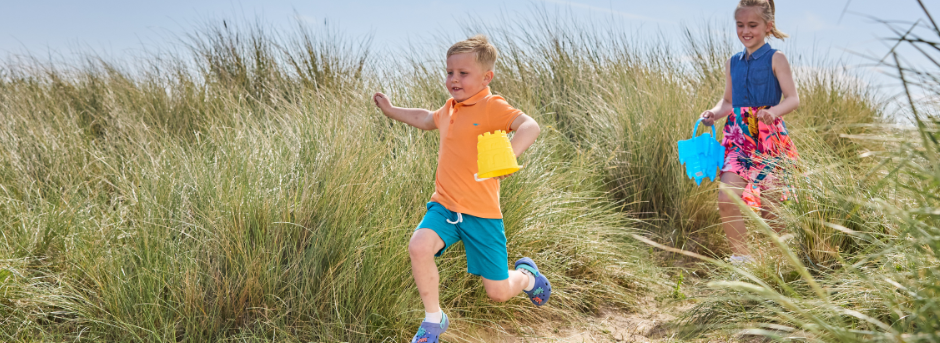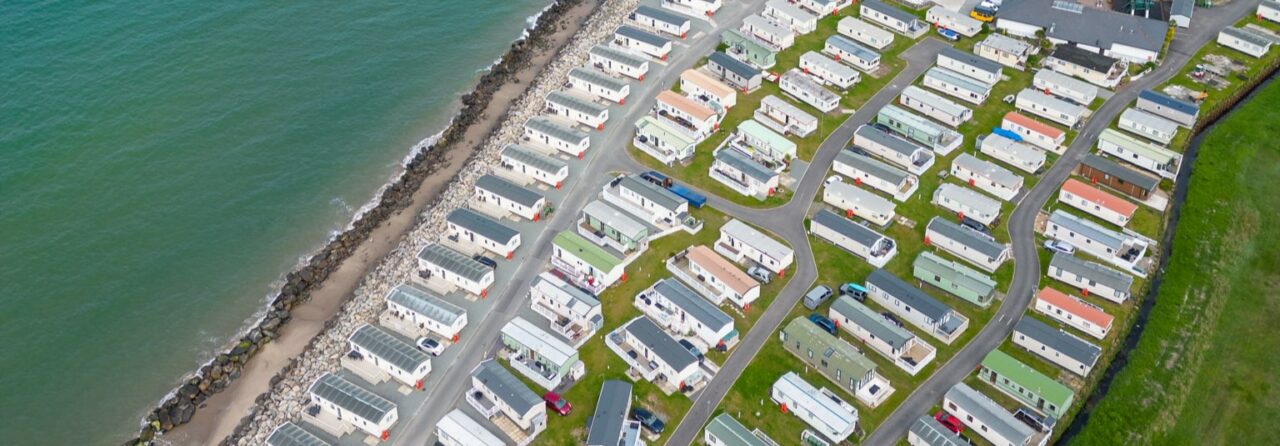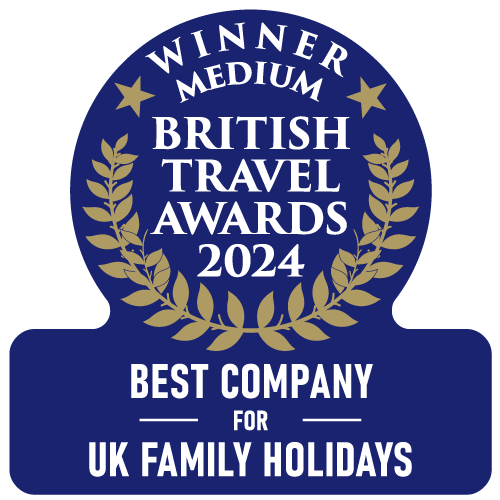The Covid-19 pandemic has put a hold on global tourism. But it doesn’t necessarily mean you can’t ‘go on holiday.’ Say goodbye to jet lag, and hello to UK holidays…
2020 brought the world to a massive, uncertain halt. Many industries were negatively affected: the tourism industry one of the highest to lose trade. Thanks to Covid-19 restrictions, events were cancelled, festivals were called off. The government even banned people from getting on a plane for most of the year.
The beginning of last year saw a first for the modern travel industry. Local authorities, national institutions and boards of scientists urged UK residents to stay home. February 2020 came with the first fall in global air travel since the financial crisis of 2008-2009.
Why did it all go wrong for holidays abroad?

All these actions were in a bid to stop the local and international spread of Covid-19. But in fact, the thought of travelling further than down the street was a big no-no for most folk. Some of these restrictions were lifted during the summer of 2020. However, almost two-thirds of Brits at that time said they would not plan on travelling overseas.
Many prospective holidaymakers simply thought travelling abroad during a global pandemic simply wasn’t worth the fuss. While others were desperate to seek some new sun and sand, the choice was taken from jetsetters again later in the year.
Many feel that their lives are being governed by those in higher roles. We know what we can’t do, what we shouldn’t do, and what will land us with a hefty fine. It’s been almost 12 whole months of ‘downsides,’ with no clear Hawaii-blue horizon in sight.
So instead of focussing on what we can’t do, here at Lyons, we want to focus on what we can. And after a massive 2020 blow in the tourism belly, we really hope 2021 will be the light-switch some keen travellers need.
In this blog post, we’ll look at how and why UK holidays are making a comeback. We’ll also share some tips at a later date on how to make the most of your staycation…and reasons to make the most of the adventure on your doorstep.
2020 and tourism: the facts

We thought it best to share some information with you to best convey how the coronavirus pandemic impacted global travel:
- Within global air travel, passenger demand fell at an unbelievable rate. In April 2020, it was down 94% compared to 2019
- Furlough and travel limitations led to 73% of people working throughout the whole of April – meaning three-quarters of the population never took a single day off over Easter break
- Domestic tourism brought in £91.6bn in 2019, but experts project a national loss of £22bn
- In 2019, experts forecast the global travel industry would grow 4% in revenue. Instead, due to the pandemic, it dropped 35%
- Online searches for the term ‘staycation’ have boomed by 517% from January – July 2020
- Searches for ‘UK travel’ has also dramatically increased by 2500% year on year
Why UK holidays became popular
‘Staycation’ is now a word as frequently used as ‘long-covid,’ ‘social distancing,’ and ‘furlough.’ Although UK holidays were growing in popularity (9% more popular in 2019 compared to the previous year), the effects of Covid-19 have been a boost for UK accommodation and tourism businesses.
The same survey revealed that many Brits have lost faith in travel companies who have plummeted in credibility due to the pandemic. They also felt that there was too much financial uncertainty wrapped up in 2020 and feared travelling abroad would become too expensive. The biggest fear was, evidently, the fear of catching coronavirus – and the anxiety surrounding different Covid-19 regulations in each country.
So, with these fears in mind, many residents decided to bag a UK holiday in 2020. Basically, it was just easier and avoided the hassle of cancelled flights or being stranded abroad with no hand-sanitiser. The summer of 2020 also brought about the biggest surge in government-backed UK holidays.
Number 10 said it was “intent on supporting the tourism industry during this challenging time.” An official at Whitehall seconded: “As soon as staycations are back on the menu, we will certainly be encouraging people to go on holiday.”
What summer 2020 meant for tourism in the UK
Many people were itching to travel. The government was itching for us to spend our scarce cash in a bid to boost the bludgeoned economy. But what impact did the coronavirus restrictions have on UK holidays? The whole message of ‘stay at home, saves lives’ contrasted with this latest tourism urge and left many feeling confused.
Demand for UK holidays was projected to decline. Many accommodation and leisure companies feared a semi-summer-lockdown would result in catastrophic plummets from previous years. Seaside communities especially feared a loss, projecting over a £13bn slash in revenue. In June last year, the National Coastal Tourism Academy claimed that 7% of businesses have already closed due to Covid-19.
Being allowed to open but reducing capacities to half was also a major factor. How could hotels, B&B’s and caravan parks channel consistent funds into advertising, staff, and maintenance campaigns when they would rake in only half the turnover? Accommodation providers hoped to reopen in July by investing in medical-grade cleaning products, implementing one-way systems, and shuffling tables in their bars and restaurants.
We know global travel companies are expecting a hit in 2021. Booking Holdings (owners of booking.com, priceline.com, kayak.com, and Cheapflights) were not far off with their prediction of -15% revenue in 2020. UK tourism businesses reported last summer a rise of 40% in traffic to their websites – and they were right to do so.
Which type of UK holidays were most popular in 2020?

Pre-Covid, it was common to take a few days off work and go on a city break. Maybe Rome or Paris with the better half, or Prague or Hungary on a girls’ weekend. In fact, almost half (46%) of Brits in 2019 jetted off to city centres with their high-density shopping outlets, tourist hotspots and bustling squares. But according to Schofields, what once was an attraction is now repellent. Crowded spaces and bustling indoor spaces mean that online searches for city breaks are down by 93%.
While hotel accommodation was the most popular option among Brits in 2019, UK holidays in 2020 took a more natural turn. 4 times more holidaymakers were considering pitches their tents, while holiday cottage online searches increased by 83%. Campsites.co.uk even reported that searches were up by 18% as early as February last year, and 30% in March.
Founder of Campsites.co.uk Martin Smith said: “Lots of the most popular holiday parks and glamping sites already have less than 20% availability for peak summer, so families that have a clear idea of where they want to go should book now rather than risk missing out. In our experience, many sites wouldn’t normally have sold quite so much summer availability this early in the year, and certainly, the traffic figures tie into that.”
Will 2021 be the same?
We know people are scared of travel companies going bust, and the risk of losing deposits is off-putting. But lavish holidays in the sun are looking less likely with many people on furlough, redundancy, or reduced-pay packages. UK holidays, therefore, offer a more financially secure option.
Nick Wyatt, from GlobalData agrees. He said: “Staycations are likely to make travellers feel more comfortable as they are familiar with the location, they can potentially avoid flying, and they know the health service and health structure.” Staycations are on the rise, with many favouring remote settings with their own accommodation. The new ‘exclusive’ is to be away from crowds, in a setting that is secure, in the open air, and most importantly, reachable by car.
UK holidays are easier on the wallet – and on the mind. People know their own health service and the rules and regulations in place.
Will travel ever be the same again?

Honestly? Not for a long time. Travel marketing expert Phil Schofield said: “It’s likely that travel habits will change significantly in the short term. [This is] due to people avoiding crowded spaces where you need to be in close quarters with other people.
“This is good news for accommodation owners in more remote parts of the UK, who will be able to reap the benefits of the money usually spent on holidays abroad or in busier areas by British tourists. [This is] a much-needed boost considering tourism from foreign visitors will be down for a while yet.”
Travel giant Booking.com is also backing staycations, or UK holidays. In a 2020 survey, it found that only 33% of Brits are planning on travelling internationally this year. In light of this, the average Brit travelled 493 miles less in 2020 compared to 2019.
Travelling to holiday destinations is predicted to change too. In 2020, train searches dropped by 80%, and almost three-quarters of people surveyed admitted they’d choose to hire a car on holiday as opposed to taking public travel. Only 30% of people said they’d be happy taking a plane. Even Skyscanner’s chief executive Moshe Rafiah said it will be a tough task in getting people to trust brands again.
A Skyscanner spokesperson said: “We are at the beginning of a long road to recovery. Changing attitudes towards travel, fluctuating demand and uncertainty around restrictions will alter the economics of tourism for the foreseeable future. Those that evolve and adapt to meet the new needs of travellers will thrive in this environment, while those that don’t may be lucky to survive.”
Zoom calls, Skype meetings and online communication have been a saving grace for many professionals. But for the global travel industry, this means that almost all corporate trips have been deemed redundant.
Are there any positives to come from this?
Staying local may be boring to some – but it does help save the planet. The research into the positive impact coronavirus has had on global warming is growing. China has already revealed that halting flights has led to a 25% decrease in carbon emissions since 2019. The number of car owners commuting less for work has an undeniable effect on the environment.
Good news too for those who wisely carried over their annual leave days! With the current lockdown in place, many are reluctant to waste a hard-earned day’s holiday to sit at home. So we expect a boom in UK holidays as people make the most of their accrued time.
Another positive is the UK holidays sector. People still want hope for the future. They still want to make memories with their loved ones. According to market industry research, people are still renewing their insurance contracts on holiday homes and a significant number of new purchases have been made in 2020.
We’re celebrating the fact that Wales has been dubbed the most popular projected place to staycation in 2021. The list was compiled by Schofield Ltd, who estimated that Wales is the top holiday home location.
With stunning snow-capped peaks, unbeatable coastlines and a plethora of local heritage, Wales tops the list of holiday home locations in the UK in 2020. Wales is easily accessed and offers fun for all the family – only an hour or so from Manchester, Birmingham, and Liverpool.



















